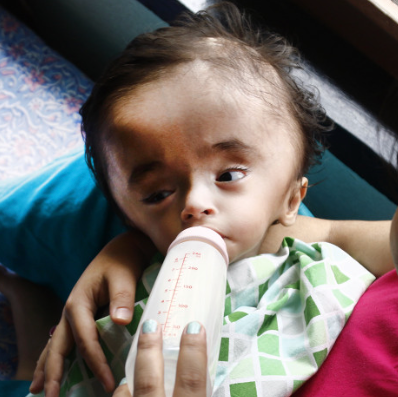Alicia Cole had been a successful working actress whose only experience with healthcare was playing doctors on TV. All that changed, however, when she learned in 2006 that she needed a “routine” procedure to remove two small uterine fibroids. Originally, she was scheduled to be home in two days, but that never took place. She left the operating room with a fever, nausea, and pain, and her condition declined from there.
Five days later, during the evening dressing check, Alicia’s mother noticed a small black dot near the incision. In just over an hour, the dot morphed into a quarter-sized pustule. Right then and there, the doctor and Alicia’s mother performed a bedside surgical procedure, cutting open her abdomen and draining the toxic fluid. A terrified Alicia would eventually be diagnosed with multiple hospital-acquired infections including necrotizing fasciitis.
Alicia’s near-fatal case of flesh-eating disease turned her entire midsection into something out of a horror movie and her two-day hospital stay turned into: one month in ICU, two months in the hospital, six additional surgeries, near amputation of her leg, a year and two months of twice-a-day home health care for dressing changes, five months of daily hyperbaric oxygen chamber treatments and three years of treatment at a wound care center for an open, draining abdomen. Six years later, she is still in physical therapy and undergoing pelvic floor rehabilitation.
Alicia’s hospital was later cited for violation of five state laws and ten federal laws for patient safety, infection control, and unsanitary conditions in their operating rooms. An ICU nurse later shared that Alicia was his third patient with NF disease and the only one to survive.
With a talk-to-type program from her bed, Alicia began to share her experience via emails, blogs and social media to educate others. In 2008, she and her parents founded the Alliance for Safety Awareness for Patients (ASAP) as an education and awareness organization. Alicia became co-sponsor of California Senate Bill 158, a measure that helps ensure that hospitals maintain a sanitary environment and mandates public reporting of hospital-acquired infection rates, it also established training programs for hospital infection control professionals. The bill was signed into law in September 2008.
Alicia was also appointed to the state HAI Advisory Committee and has worked tirelessly on the Education and Public Reporting Subcommittee. This year, she also became a member of the State of Wyoming HAI Advisory Group and Chair of the Engagement Committee. She has worked with the Consumers Union Safe Patient Project, lobbied on Capitol Hill, presented at the CMS QualityNet Conference, and was among the inaugural class of patient advocates invited to contribute at the IHI National Quality Forum. All this between making her weekly doctor appointments and physical therapy!
Alicia is also currently a graduate certificate candidate in the Healthcare Management & Leadership Program at UCLA and consulted on the development of the school’s new Patient Advocate Program.







